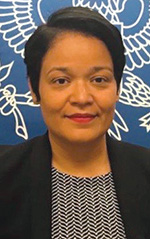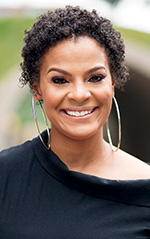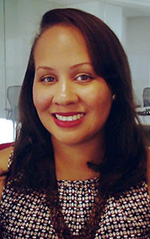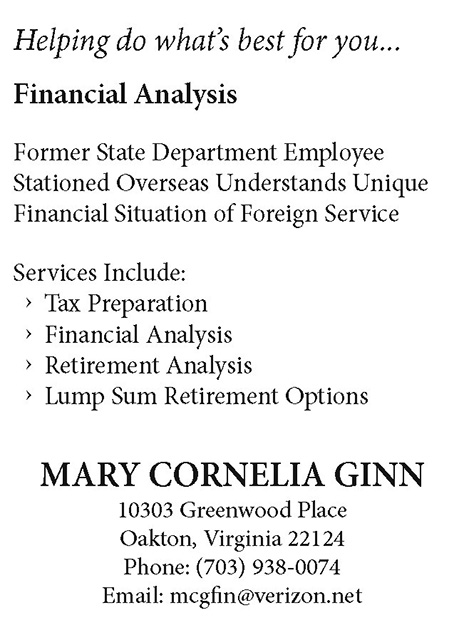A Paradigm Shift for Diversity
Speaking Out
BY LIA MILLER, ANA ESCROGIMA AND CHRISTINA TILGHMAN
Speaking Out is the Journal’s opinion forum, a place for lively discussion of issues affecting the U.S. Foreign Service and American diplomacy. The views expressed are those of the author; their publication here does not imply endorsement by the American Foreign Service Association. Responses are welcome; send them to journal@afsa.org.
When we contributed to the September 2020 FSJ focus on diversity, the State Department was in the midst of an awakening. This included the proliferation of discussion fora and diversity and inclusion councils, the rise in stature of employee affinity groups (EAGs) as partners in departmental efforts, and the doubling in size of the Pickering and Rangel fellowships.
In that article, we posed a series of questions to keep ourselves and the institution honest about the efforts it decided to implement in the aftermath of George Floyd’s murder. We welcome the adoption of diversity, equity and inclusion (DEI) as a State Department priority, and we urge our colleagues and department leaders to ensure that we do not content ourselves with a rhetorical, formulaic or performative commitment to diversity and inclusion.
Following on the heels of the Secretary’s April 2021 remarks, and the appointment of Ambassador Gina Abercrombie-Winstanley as chief diversity and inclusion officer (CDIO), we have an opportunity to make progress. We offer the following ideas for consideration and action.
Get Comfortable with Discomfort
The past year has offered no shortage of incidents that are uncomfortable for us as a department to talk about. We were completely unprepared for the terrifying Capitol riots in January, the discovery of a swastika carved into a State Department elevator, and the disturbing revelation of white nationalist views promoted on social media by department colleagues. State employees have had uneven experiences as posts and offices reacted in sharply divergent ways to these moments, ranging from complete silence to meaningful opportunities to engage and confront these issues with colleagues.
The past year demonstrated we cannot wait for these discussions to get easier. We need to normalize and reward leadership practices that foster difficult but necessary conversations about equity in our organizations. When employees are courageous enough to put themselves out there, these discussions should culminate in actions that institutionalize reform efforts and support for DEI. Selection processes for leadership positions should reflect an ability or an interest in guiding teams through such difficult moments to concrete outcomes appropriate to that particular post or office.
Attract and Retain Diverse Personnel
We are beginning to see an increase in senior appointments of career officers who reflect the diversity of America, mostly accomplished through the political appointment process. This is a start, but we cannot declare victory yet. Strong representation and advancement from within is crucial for the long-term development of the Foreign Service and Civil Service ranks throughout the career pipeline.
As the State Department focuses its energy on creating a new midlevel hiring stream, we should develop a baseline understanding of why many diverse officers in the pipeline today are choosing to leave. Affinity groups and several bureaus have done a phenomenal job of conducting climate surveys, exit interviews, and mentorship and sponsorship initiatives. The department should standardize and execute these best practices.
Improve Accountability at the Top
We continue to call for the institutionalization of accountability measures to put a stop to toxic leadership styles and work environments. There needs to be a re-evaluation of conduct and suitability mechanisms of the deputy chief of mission, principal officer (DCM/PO) and ambassadorial vetting processes. The inclusion of the CDIO on the D Committee (which reviews candidates for high-level positions) is an important structural reform.
Our institutional culture, however, still disincentivizes the reporting of toxic leadership or channels such reporting into HR processes that historically have failed to hold perpetrators to meaningful account. A failure at the DCM/PO selection stage to incorporate accountability would deal a major blow to the morale of midlevel officers. Without improved leadership, we will continue to perpetuate old models and thus hemorrhage the very talent we aspire to recruit in greater numbers.
Identify Resources
Diversity and inclusion councils have sprung up around the world to improve our work environments and tackle complex societal issues that seep into the workplace. These councils are doing important work; yet they are led by often overburdened volunteers passionate about our institution and inspired by optimism of what it could be.
Unfortunately, many councils have lost their steam. In some cases, officers of underrepresented groups find themselves carrying this torch in addition to their regular work responsibilities, concerned that if they were to stop working on these issues, efforts would cease. Mission and bureau front offices should champion their efforts and meet with councils regularly if they are not yet doing so.
We also need professional outside help to examine our blind spots and identify resources to support volunteers in this important work. One way to address these personnel questions is stepped-up efforts by State’s Global Talent Management and the Foreign Service Institute to train employees in the skills needed to hold these crucial and difficult conversations and develop preferred leadership practices.
Promote DEI in National and Foreign Policy
On his first day in office Jan. 20, President Joe Biden signed Executive Order 13985 to advance racial equity and support for underrepresented communities across the federal government. Later, in June, President Biden issued Executive Order 14035 to further advance equity within the federal government by cultivating a workforce that draws from the full diversity of our nation.
Integrating DEI into our internal operations and overall foreign affairs mission requires a paradigm shift within our organization. How are we developing our leadership pipeline to manage organizational change and tackle 21st-century foreign policy challenges? How are we engaging with other countries to promote equity and support for underserved communities in our foreign affairs policy work?
Honor a Legacy
We, the authors, are proud to count our careers as part of the legacy of the late Ambassador Edward Perkins, a legacy that the department honored through a touching memorial ceremony and creation of a departmentwide award this year. [AFSA honored Amb. Perkins with the 2020 award for Lifetime Contributions to American Diplomacy shortly before his death; see interview in the December 2020 FSJ.] Any success we have achieved in diversifying State is thanks to advocacy and reform that he and a number of his trailblazing generation pursued despite the risks to their careers.
When taking stock of DEI, it is tempting to congratulate ourselves on how far we have come. We would like to take his legacy as a challenge to do even more. Diversity, equity and inclusion are not just management principles to deploy to address workforce challenges; they are about people. These values should permeate every aspect of our mission, including our outward-facing efforts.
Responsibility for the success of this work does not fall squarely on the shoulders of State leadership, especially the newly appointed chief diversity and inclusion officer and her office. Rather, it rests with each and every one of us. We can only succeed as a department if every person is accountable—as individuals, colleagues, supervisors and citizens. If we get this right, it will have an impact on many generations to come.
Read More...
- “Diversity at State: A Dream Deferred and a Collective Responsibility,” by Ana Escrogima, Lia Miller and Christina Tilghman, The Foreign Service Journal, September 2020
- “Inclusion Helps Drive Diversity,” Mirembe Nantongo, The Foreign Service Journal, September 2020
- “The Making of a Real American Diplomat,” by Julie Chung, The Foreign Service Journal, September 2020






